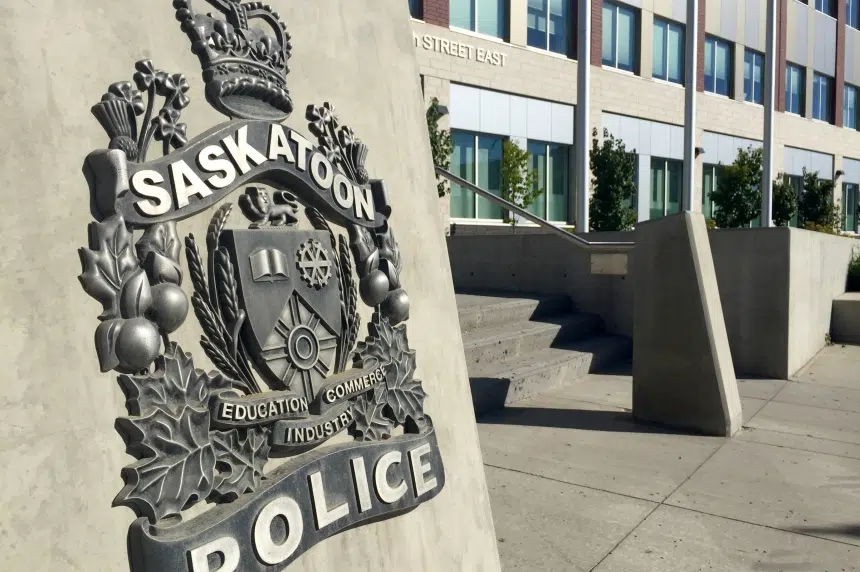Simple possession of some drugs won’t necessarily mean criminal charges in Saskatoon.
Saskatoon’s Board of Police Commissioners met Thursday, with decriminalization of simple possession on the agenda.
The board is deciding for now to take a “de facto” approach to charges for possessing substances under Section 4(1) of the Controlled Drugs and Substances Act (CDSA), which Police Chief Troy Cooper said isn’t too different from what officers are already doing in the city.
The drugs included under that section include substances listed in Schedule I, II or III of the CDSA. Those include drugs like cocaine, codeine, fentanyl, heroin, methamphetamine, morphine and oxycodone.
Supt. Patrick Nogier presented a report to the board Thursday with information from Saskatoon police to paint a greater picture of what decriminalization might look like.
Statistics from their information management system showed about 78 per cent of all simple possession charges in 2021 were withdrawn, stayed or dismissed — meaning only a low percentage of charges made it before the court.
The report suggested that means people using drugs locally are “not being criminalized for illicit drug possession unless there is a public safety concern.”
In a report completed by Dr. Lori Hanson and Dr. Barb Fornssler — academics enlisted to assist with research and discussions about decriminalization by the Saskatoon police — three policy options were laid out for consideration.
The report noted more than 900 overdose deaths have taken place in Saskatoon over the past three years.
They included maintaining the status quo by choosing not to pursue decriminalization in Saskatoon, taking a “de facto” approach and implementing some change in action but not in policy, and a “de jure” approach where simple drug possession would become decriminalized in Saskatoon.
Speaking to the board Thursday, Hanson and Fornssler recommended the “de facto” approach be implemented immediately by the city.
It would not require any changes to current laws or regulations, but instead would include a commitment by police to use discretion in choosing options other than laying charges when dealing with an individual in possession of one of the listed substances.
Police are still able to pursue charges, depending on other criminal activity or danger to the public based on the situation, or if other illegal substances were involved.
Cooper said police statistics show Saskatoon police officers are already taking that approach to simple possession, where appropriate. However, a health-led approach — encouraged by Hanson and Fornssler — and appropriate diversion pathways that stem from it are areas that require greater examination for Saskatoon at this time, the board decided.
Fornssler said she hopes this opportunity can make Saskatoon an example of how things can change.
While other cities have chosen to not pursue decriminalization of simple possession or have stalled on the issue, Fornssler said the inaction of other cities should not encourage inaction in Saskatoon, with the hope that what is done in Saskatoon might inspire other cities.
She also recognized a unique collaborative relationship between police, Prairie Harm Reduction and the City of Saskatoon presents opportunities.
Mayor Charlie Clark says the meeting gave a better understanding of what this all means for Saskatoon.
“We have a much better picture right now of the nature of charges, of the nature of convictions, the sort of issues around diversion, stabilization,” Clark said.
He noted the statistics show the issue is a pressing one for Saskatoon neighbourhoods and communities.
Commissioner Hilary Gough said the conversation is one that needs to be continued as they learn more about how decriminalization could be achieved in Saskatoon and what it would mean for the city.
More research and discussion was also raised by Cooper, who said there is no simple solution to change in this instance, even with granting officers greater discretion.
He said arrests and warrants will still have to be carried out, and options for diversions — instances where police could divert an individual from the justice system towards options like health supports — need to be explored more.
Cooper also said it’s important to note on how many occasions simple possession charges have been laid where they were suitable. He suggested police would look into the data to assess how those charges have or haven’t worked in the past.
The board decided to continue to discuss the matter in the coming months. In the meantime, the completed reports on decriminalization in Saskatoon will be shared with stakeholders, including the Saskatchewan Drug Task Force, to explore future options for action.











